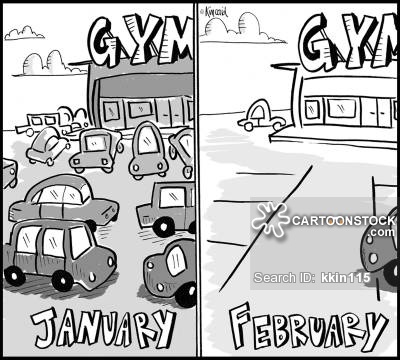Do not let that title confuse you, I am a huge believer in goals, but New Year’s resolutions normally are not goals. In fact, only 8% of people actually keep their resolutions. The new year is a great time to reflect and to hit the reset button for sure, but I’m going to show you a better way than simply saying “I’m going to lose 10 pounds.” The issue that I have with resolutions, is that the majority are either, unrealistic, too drastic, not well thought out, or unsustainable. Most likely a combination of all of these.
Based on my experience, you will greatly improve your chances of hitting your goals if they are S.M.A.R.T. I did not come up with this, I was taught, and I cannot find out who to give credit to, as this acronym is all over the coaching world. I do add my own little twist to it at the end here, so hold on. What are S.M.A.R.T. goals? They are:
Specific
Measurable
Achievable
Relevant
Timely
Sustainable (I added this one, as I think that it way too often overlooked)
Specific
Generic goals simply do not get met because there is no real direction. Let’s stick with our weight loss goal above. When do you want to lose 10 pounds by? Someone can say they want to lose 10 pounds, but if they haven’t placed a date to be accountable by, it becomes very easy to pick up that next cookie. Goals need to be as specific as possible and can even help with visualization. You should be able to picture in your mind what it will look and feel like when you achieve your goal. Be as specific as possible.
Measurable
This particular goal is measurable in regard to the weight loss, but as noted, not the time line. This is an area that people often do not put enough time in to because generally they feel that what they will measure is obvious. However, there are usually multiple metrics that can be measured to improve the probability of success and accountability. For weight loss, you can measure calories in and calories burned, as leading indicators of whether or not you will hit your goals. So, as you can see, it makes sense to really think this through and not only measure the ultimate goal, but also, what I call “process goals”.
Achievable
Surely losing 10 pounds is achievable? Well, what if the goal was lose 10 pounds in 3 days? This MIGHT be achievable, but does it make good sense? Unless you are a fighter trying to make weight, probably not. And if you set goals that are not achievable, you are likely to get frustrated, feel like you have failed, and give up. Lose 10 pounds in 10 weeks, is a much more achievable goal, that you have a much better chance of hitting and feeling like you have succeeded. And, success breeds success.
Relevant
Your goals have to mean something to you. If you are 6 feet tall and weigh 150 pounds, losing 10 pounds probably isn’t important to you! To improve your odds of success, make sure that you clearly understand why you are setting the goal in the first place, and be completely honest with yourself. No one else has to know your why. People that I work with tell me all the time that their reasons for setting a particular goal is “stupid” or “shallow”. That, my friends, is bullshit. You want to look good in a speedo? Great! You want to climb Mt. Everest? Go for it! You do you and be proud.
Timely
Man, I cannot stress this one enough. Losing 10 pounds by tomorrow doesn’t work and neither does “before I die”. Be reasonable here and do not underestimate the importance of this. Why? ACCOUNTABILITY. Having a time line that is achievable removes excuses and makes you accountable. If you are trying to lose 10 pounds in 10 weeks, you are much more likely to stick to eating healthy and exercising because you know that this is an achievable goal. If your goal was to lose it by tomorrow, you might as well eat the cake, because it ain’t happening anyway. And if you have a year, well you can always catch up next week, right?
Sustainable
I’ll give you a little taste here, but this will be a post on its own within a few days. When people find out that I lost 130 pounds, they say “Great job! You must be proud?” Well, I am. But not of the weight loss. Anyone can lose weight, I am proud that I have SUSTAINED the weight loss. Going back to the 10 pounds in 10 weeks, you can achieve that in so many ways. As an example, let’s say all you eat is cabbage soup and you lose the 10 pounds, is that sustainable? No way. And once you start to eat other food, guess what? You will most likely gain the 10 pounds back and maybe more. So how do you sustain your gains, whether it is weight loss or anything else? Here’s a hint: Lifestyle change, process, and process goals. The journey my friends… I’ll address this in detail next post.
I hope that this post and this blog helps! To receive new post notifications, newsletters, and post previews, please SUBSCRIBE!
For behind the scenes photos and comments on my training and personal life, follow me on Instagram: joe_the_runner Strava: Joe Randene YouTube: Joe Runner
Questions, comments, feedback? Please leave them in the comments section BELOW and we can have a discussion!



Thanks.